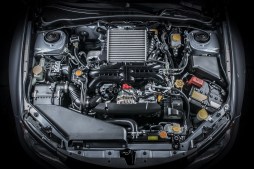Top 5 Factors to Consider When Choosing Between Portable and Standby Generators
When it comes to choosing a generator, homeowners often find themselves torn between portable and standby options. Both types have their unique benefits and features, making the decision challenging. In this article, we’ll explore the top five factors you should consider to help determine which generator is right for your needs.
Power Output Requirements
The first factor to consider is the power output you need during an outage. Portable generators typically offer lower wattage compared to standby generators, which can provide enough power for your entire house. If you only need backup power for essential appliances such as refrigerators or lights, a portable generator may suffice. However, if you want to keep your home fully powered during an extended outage, a standby generator is likely the better choice.

Installation and Setup
Portable generators are designed for ease of use; they require minimal setup and can be connected with extension cords as needed. They are also lightweight and easy to transport. Standby generators, on the other hand, require professional installation due to their permanent placement outside your home and connections to your electrical system. This means higher upfront costs but offers more convenience in terms of automatic activation during outages.
Fuel Type and Efficiency
Consider what fuel type works best for your situation—portable generators usually run on gasoline or propane while some models may support dual-fuel capabilities. Standby generators often operate on natural gas or propane through a dedicated fuel line, providing convenience but requiring access to these resources at all times. Additionally, standby generators tend to be more fuel-efficient over prolonged usage compared to portable counterparts.
Noise Levels
Noise can be a significant consideration when choosing between these two types of generators. Portable generators are generally noisier than standby generators because they operate with open engines that create sound while running under load conditions. If noise is a concern—especially if you live in a densely populated area—you might prefer the quieter operation of a standby generator that runs more smoothly without external noise distractions.
Budget Considerations
Lastly, budget plays an important role in deciding between portable and standby models. While portable generators tend to have lower initial costs (often ranging from $300-$1000), they may require additional expenses for fuel over time or extra accessories like transfer switches or surge protectors when used frequently during outages. Conversely, standby systems can cost anywhere from $2000-$5000 installed but provide peace of mind with less ongoing maintenance since they’re designed for long-term use without frequent refueling.
In conclusion, both portable and standby generators have their advantages depending on your specific requirements such as power needs, installation preferences, fuel options available nearby as well as budget constraints listed above. By evaluating these factors carefully before making any decisions will ensure that you choose wisely based on what suits best within context of safety & convenience.
This text was generated using a large language model, and select text has been reviewed and moderated for purposes such as readability.











